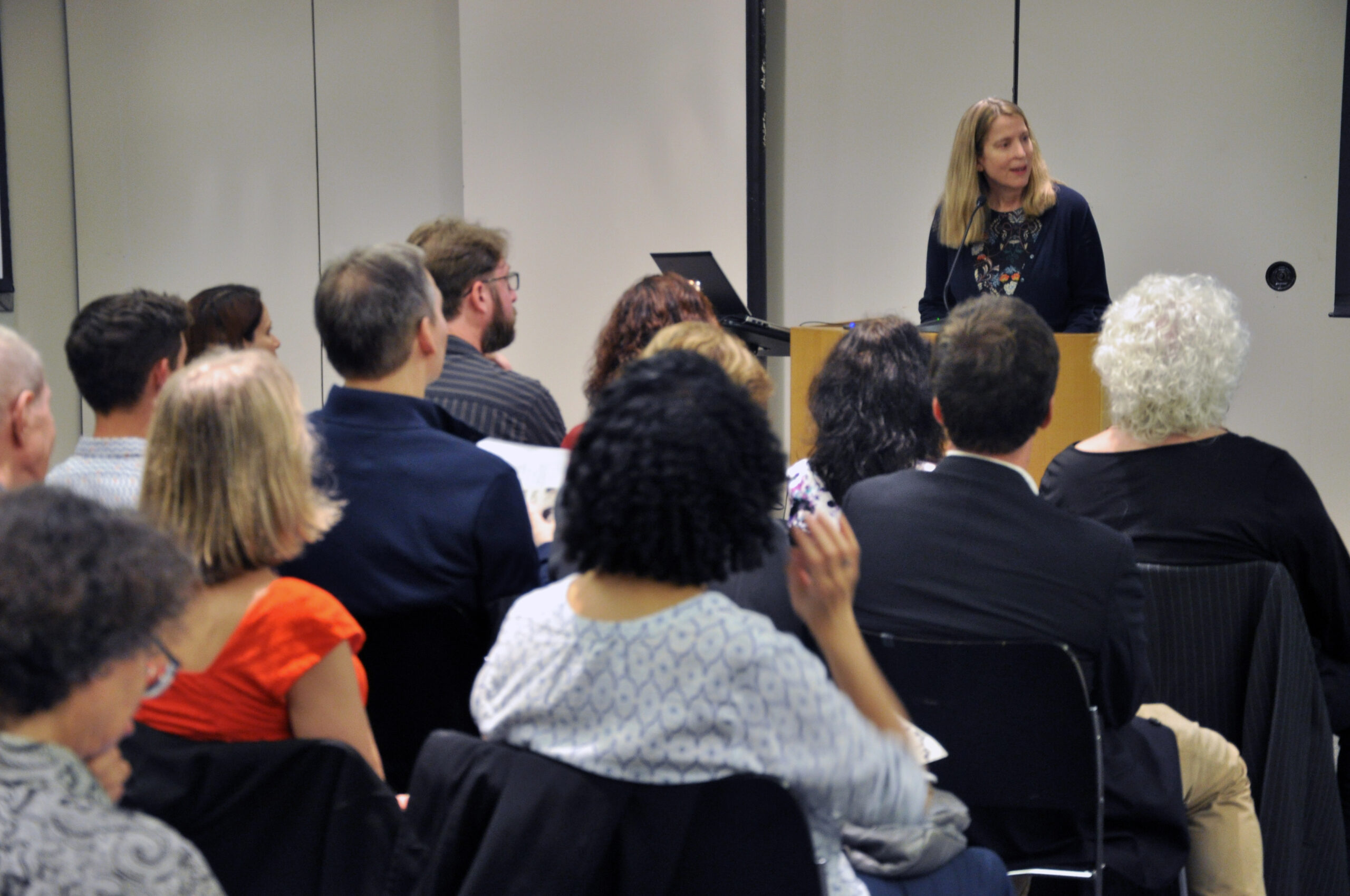
Allen began her conversation by pointing out the
large strides that have occurred in the publishing industry toward
embracing translations. In the early 1990s, editors would often refuse
to publish translations, using the reason that “they just don’t sell.”
The de facto result of this was neglecting 80% of the world’s
literature.
She then moved into discussion of polyglossia,
and how the negotiation of untranslated terms without a translated work
could create unique effects. These effects, she explained, were of
different efficacy to different translators. In describing her
translation of Rosario Castellanos’s The Book of Lamentations,
she recalled coming across “San Juan,” which, as a native of California,
she had left alone (San Juan is a location in Southern California). In a
different translation, however, this had become “Saint John.”
Subjectivity is a large part of these decisions, and how such decisions
strike a reader’s ear. She asked us to think, in Schleiermacher’s terms,
of who is “foreignizing” and who is “domesticating.”
The 1990s were also a time of authors
experimenting with polyglossia as a rhetorical tactic. Notable examples
include Salman Rushdie and Junot Díaz. The latter’s The Brief Wondrous Life of Oscar Wao uses
roughly 18% Spanish, often teaching the reader to decode using
contextual clues. Allen described her potential translation of Juan
Rulfo’s “You Don’t Hear the Dogs Barking,” in which she wanted to have
the father in the story, a pillar of traditionalism, speak untranslated
Spanish, and the child, who has supposedly revoked his past, speak
English. Cormac McCarthy also often uses blocks of untranslated Spanish
as an “illustration,” almost-typographical blocks of text that even if
one doesn’t comprehend serves an aesthetic purpose.
Overall, Allen argued for the productivity of
polyglossia, arguing that not only was it essential to expressing
certain structural ideas, but it also often honored certain authorial
concepts about the figurative power and import of translation.